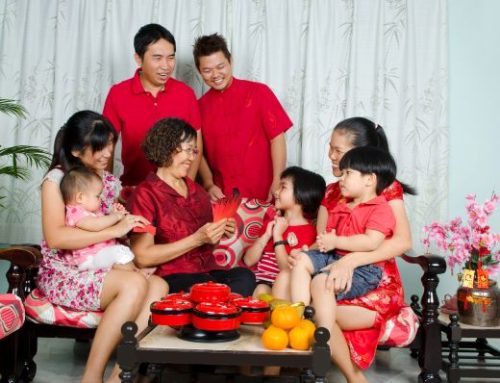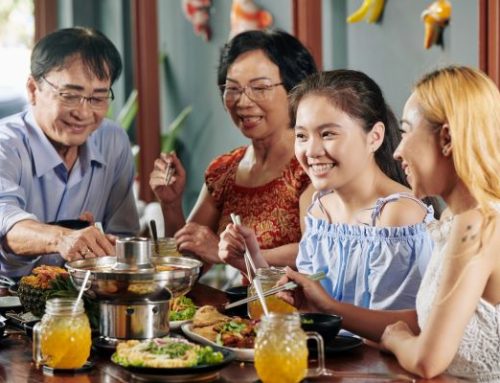The health benefits of herbs and spices and how they were incorporated in our traditional dishes by our ancestors.
Last week my aunt sent me a link from Penang’s newspaper, which encouraged people to grow herbs and vegetables in their garden. They shared ideas on how to use the herbs, how to appreciate the aroma (those with aromatherapy background would understand) of the herbs, and how to enjoy the enormous health benefits from them.
I am an advocate for encouraging people to consider making time to reconnect to the food that were consumed by their ancestors, i.e. for example, the food that we were brought up with, our cultural, traditional and home cooked meals prepared by our families.
Take for example, this amazing peranakan cuisine – nasi ulam. “Nasi” (in Malay) means rice and “Ulam” (in Malay) means the assortment of herbs served in this dish. This is a rice dish mixed with healthy, fresh and finely chopped assortment of herbs. Apart from Assam Laksa, I could not think of any more healthy dishes than nasi ulam.
What about all the curry dishes from the Malaysian cuisines? Just the “rempah” (pastes), they have all the necessary aromatic herbs blended together to create that specific curry dish.
For example:
Curry Kapitan – you have onion, garlic, dried chilli, lemongrass, lime leaves, tamarind, turmeric etc.
Curry Chicken – Shallot, garlic, lemongrass, chilli, coriander, ginger, fennel, star anise, cinnamon etc.
Rendang – Lemongrass, coriander, garlic, onion etc.
Assam Laksa – onion, garlic, lemongrass, ginger flower, chilli, tamarind, turmeric, Vietnamese mint etc and garnished with mint, cucumber, onion, lime, and pineapple etc.
There are so many traditional sweets that use pandan leaves (screw pine leaves), bunga telang (butterfly pea flower), daun kaduk (wild pepper leaf), mint etc.
As you can see, the basic Peranakan / Malaysian dishes mentioned above are fueled with health benefits from nature, and that’s the way it should be isn’t it?
Our ancestors drew on the inspiration of the nature around them; through imagination, trial and error they came up with various sumptuous and nutritious dishes that sustained them for generations. So, isn’t it a good idea to reconnect and fuel our diet with what we were brought up with?
What really got me into encouraging people to reconnect to their traditional dishes was reading (finishing) this book Deep Nutrition – Why Your Genes Need Traditional Food by Catherine Shanahan MD.
I started to appreciate the values and importance of traditional food and their benefits – the food that our ancestors ate and passed down to us to enjoy. The author also shows us how the habits of our ancestors can help us lead longer, healthier, and more vital lives.
Start reconnecting back to the food that your grew up with, and introduce them to your children, it will not only benefit your health and well being, but a great way to connect with your family.
>> Nonya dishes made simple with readymade sauces from Penang







Leave A Comment